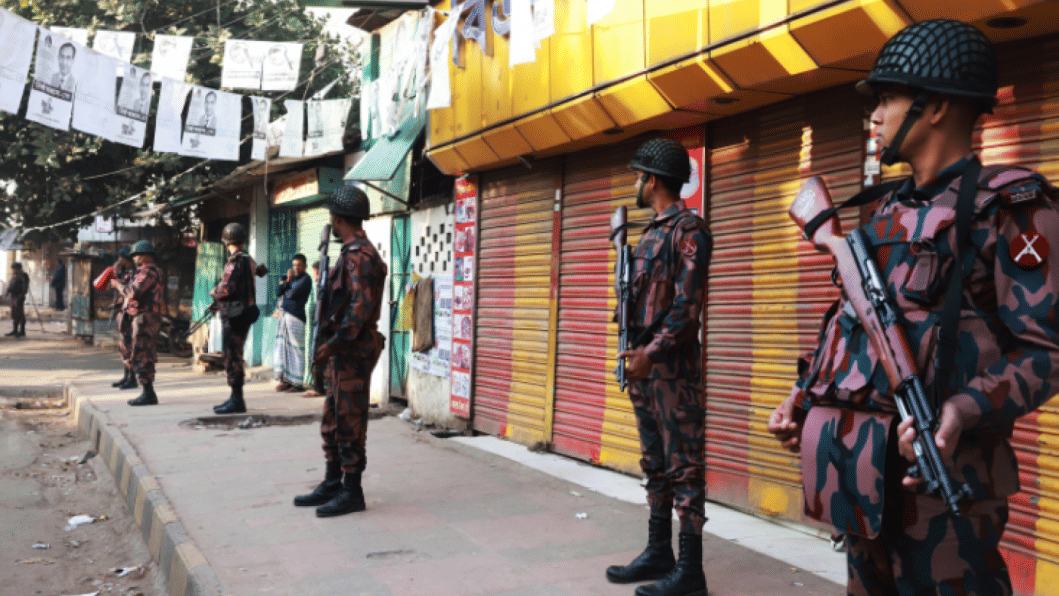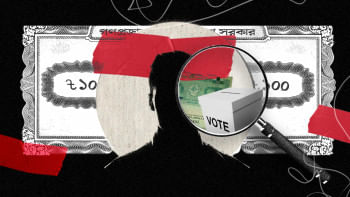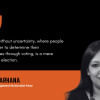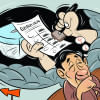When the ruling party does the opposition's work

The January election has been the centre of attention for well over a year now. Everyone was curious how this edition would eventually pan out, especially whether BNP would finally be able to pressure the government into forming a nonpartisan election-time government, which is difficult, if not impossible. Some were just excited about the possibility of voting and it actually counting, unlike the last two elections. However, with BNP's boycott confirmed and seats distributed among Awami League's alliance, the results are almost a foregone conclusion.
Brig Gen (retd) M Sakhawat Hussain, former election commissioner, said this election is essentially a quest for an opposition party (read opposition in parliament). Although 27 parties are contesting in the polls, the search for a viable opposition remains the most prominent feature. The situation is so obvious that even someone without much political insight can predict that the ruling AL will form the next government with an absolute majority.
So, when the results are a foregone conclusion and winners are already known, the election has little significance. The results are predictable as the elections will be held under a range of restrictions.
The restrictions are an important issue here. The Election Commission asked the government to take measures so that no political programmes, other than for electioneering, can be held after December 18. In a letter sent to the home ministry, the EC said parties should be stopped from holding rallies and other public events that may "obstruct the election process and discourage people from casting their votes." The measures should be in place till after the election on January 7, said the letter, addressed to the senior secretary of the Public Security Division.
It is the EC's role to ensure a congenial atmosphere for people to cast their votes freely. But the way the commission is stopping the activities of political parties is merely a bid to hide its failure through other means. This type of action had not been taken by any EC, not even by the 2014 Rakib commission. But this is not unexpected, as the commission itself announced the election schedule amid high security and beefed up police protection, with the deployment of armoured personnel carriers and water cannons.
Basically, this level of security at the EC betrays the election's true nature and how congenial the prevailing atmosphere is. True, BNP and other opposition parties are enforcing hartals and blockades, demanding a nonpartisan interim government. But the political opposition is fully within its rights to demand and campaign to oust the government. Obviously, opposition parties will not support the government when elections come around.
But for the EC to also act as an extension of the political government and bar political programmes that might "discourage people from voting" betrays its inherently nonpartisan design. Holding rallies is a fundamental right not just of a political party but also of individuals, a right that should not be tainted with equivocations or conditions, or intermitted because of "special circumstances."
Not even the home ministry can lawfully abide by the commission's request. Just like casting votes is a right, so is not casting it. And so is waging a peaceful campaign to convince people not to vote at all. Since there is no "no vote" option, as there was in 2008, citizens may not feel compelled to vote. Thus, any campaign to discourage people from voting is as lawful as the urging people to vote for a certain candidate.
To complicate this further, in a television interview, ruling party leader and agriculture minister Abdur Razzaque said BNP received a number of generous offers. The party was even told that all its leaders would be released from jail overnight if it decides to join the January 7 election.
Distancing the ruling party from Razzaque's comments, AL general secretary Obaidul Quader, the very next day, said the remarks were not of AL's but that of the minister's alone. On the same day, Razzaque said, "I think what I said, I did not say anything wrong, not a bit. The statement is correct."
For a long time, BNP leaders have been accusing the government of politicising the legal system and imprisoning its activists and members illegally. Razzaque's statements only vindicate what BNP has been claiming all this time.
As BNP is not contesting the polls, it will try to make the election controversial, demonstrating the loopholes and deficiencies. And towards that end, the opposition parties must give a big thanks to Razzaque and the Election Commission, as they are doing the opposition's work, making it easier to illustrate that the system is so tainted that an election under Awami League would never be fair.
Prime Minister Sheikh Hasina already said that BNP is plotting to create a famine in the country, after realising that it won't be able to thwart the upcoming election, and perhaps realising that tough times are coming a few months down the line. We are hopeful that under Hasina's iron-handed leadership, there will be no such famine in the country. But it appears there is another kind of crisis under her watch—a 10-year drought of proper elections, a drought that won't let up soon, it appears.
Mohammad Al-Masum Molla is chief reporter at The Daily Star.
Views expressed in this article are the author's own.
Follow The Daily Star Opinion on Facebook for the latest opinions, commentaries and analyses by experts and professionals. To contribute your article or letter to The Daily Star Opinion, see our guidelines for submission.

 For all latest news, follow The Daily Star's Google News channel.
For all latest news, follow The Daily Star's Google News channel. 









Comments